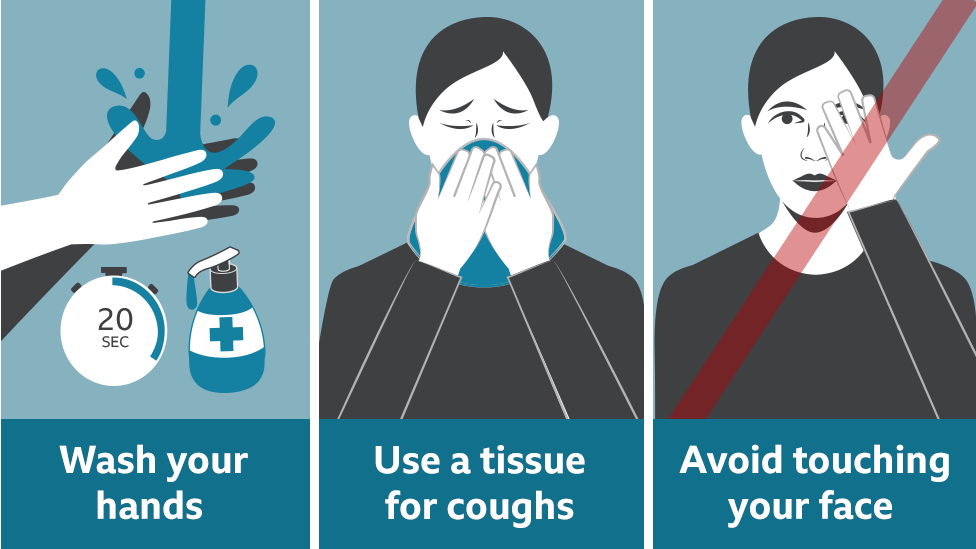Corona Virus disease (COVID-19) has spread from China to 400+ countries or territories, including India, USA, UK, and claimed more than 3,80,000+ lives.
So, what is the disease, how does it spread and when are people most infectious?
1. What is the new virus?
SARS-CoV-2 is a coronavirus that causes corona virus disease 2019 (COVID-19). Coronaviruses, in general, are a family of viruses that target and affect mammals’ respiratory systems. According to their specific characteristics, there are four main “ranks” (genera) of coronaviruses, which are called alpha, beta, delta, and gamma.
Most of these only affect animals, but a few can also pass to humans. Those that are transmissible to humans belong to only two of these genera: alpha and beta.
Only two coronaviruses have previously caused global outbreaks. The first of these was the SARS coronavirus — responsible for severe acute respiratory syndrome (SARS) — which first started spreading back in 2002, also in China. The SARS virus epidemic primarily affected the populations of mainland China and Hong Kong, and it died off in 2003.
The other one was the MERS coronavirus — or Middle East respiratory syndrome coronavirus — which emerged in Saudi Arabia in 2012. This virus has affected at least 2,494 people since then.
What are the coronavirus symptoms?
Corona virus infects the lungs. The symptoms start with a fever followed by a dry cough, which can lead to breathing problems.
This is a new, continuous cough and means coughing a lot for more than an hour, or having three or more coughing episodes in 24 hours (if you usually have a cough, it may be worse than usual).
It takes five days on average to start showing the symptoms, scientists have said, but some people will get symptoms much later than this. In fact the World Health Organization (WHO) says the incubation period lasts up to 14 days.
People will be most infectious when they have symptoms, but there have been suggestions some can spread the virus even before they are sick.
The early symptoms can easily be confused with other winter bugs including colds and flu.
How deadly is corona virus?
The proportion dying from the disease appears low (between 1% and 2%) – but the figures are unreliable.
Thousands are being treated but may go on to die – so the death rate could be higher. But it may also be lower if lots of mild cases are unreported.
A World Health Organization examination of data from 56,000 patients suggests:
- 6% become critically ill – lung failure, septic shock, organ failure and risk of death
- 14% develop severe symptoms – difficulty breathing and shortness of breath
- 80% develop mild symptoms – fever and cough and some may have pneumonia
Older people, and those with pre-existing medical conditions (such as asthma, diabetes, heart disease, high blood pressure), are more likely to become severely ill. The data from China also suggests that men are at slightly higher risk of dying from the virus than women.
Treatment relies on keeping the patient’s body going, including breathing support, until their immune system can fight off the virus. Work to develop a vaccine is underway.
How do I protect from Corona Virus?
protection from Corona Virus is not much difficult. You can also try the Indian Ayurveda method to protect yourself, read more here..
The best thing is regular and thorough hand washing, preferably with soap and water.
Coronavirus spreads when an infected person coughs small droplets – packed with the virus – into the air. These can be breathed in, or cause an infection if you touch a surface they have landed on, then your eyes, nose or mouth.
So, coughing and sneezing into tissues, not touching your face with unwashed hands, and avoiding close contact with infected people are important for limiting the spread.
Face masks do not provide effective protection, according to medical experts.
What should I do if I think I have coronavirus?
Patients with mild symptoms – such as a new continuous cough or a high temperature above 37.8C should self-isolate at home for at least seven days, according to the latest advice issued by Public Health England.
People are being advised not to ring NHS 111 to report their symptoms unless they are worried. They should also not go to their GP, or A&E.
Details for Scotland are to check NHS inform, then ring your GP in office hours, or 111 out-of-hours. In Wales call NHS 111, and in Northern Ireland, call your GP.
If you have come into contact with somebody who may be infected, you may be told to self-isolate. Advice for people who have travelled back to the UK from affected areas and who may need to self-isolate, has been issued.
Other countries have introduced their own measures For example, the US Centers for Disease Control and Prevention advises people showing symptoms to call their healthcare provider, and those who are mildly ill to self-isolate.
The World Health Organization has also issued advice for the public.
Who gets tested and how does it work?
In its latest advice, Public Health England (PHE) has said those who are self-isolating with mild symptoms will not be tested.
However, all hospital patients with flu-like symptoms will be tested.
If you need testing in the UK results may be available on the same day, but you may be asked to stay at home and self-isolate. while you wait.


